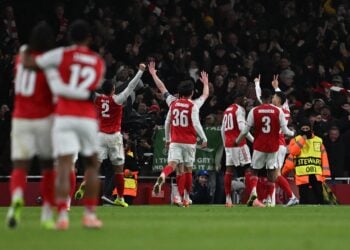The Milk Cup has made a massive leap, moving from LA Comicon to the heart of Twitchcon 2025, with official competitive Fortnite hosting and a prominent booth dominating the show floor. We had exclusive access to speak with competing duos—Daya+Yaz, Nina+Vader, Moxie+Regs, and Kanary+Fraanticc—who revealed their intense preparation strategies, mindset differences, and what it takes to compete at the highest level of women’s Fortnite esports. This is what separates champions from the rest.
Table of Contents
Fortnite Milk Cup 2025: Tournament Overview
| Aspect | Details |
|---|---|
| Event Name | The Milk Cup 2025 |
| Host Location | Twitchcon 2025 (LAN) |
| Tournament Type | Women’s Fortnite Duos |
| Notable Teams | Daya+Yaz, Nina+Vader, Moxie+Regs, Kanary+Fraanticc |
| Event Status | Official competitive Fortnite channels |
| Focus | Competitive excellence + Community building |
The Milk Cup represents the pinnacle of organized women’s Fortnite competition, showcasing only the best-of-the-best competitors. Only the most elite duos receive invitations, making this tournament a defining moment in esports careers.
For comprehensive Fortnite tournament coverage, explore TechnoSports Fortnite Competitive Hub.

From Ranked to LAN: The Preparation Paradigm Shift
Learning from Lower Placements
Daya and Yaz came into The Milk Cup with mixed recent results—securing 6th place in online qualifiers despite historic first and third-place finishes previously. Rather than viewing this negatively, both competitors framed it as essential learning: “Getting that placement is something you can learn off of. It just helped me want to try more,” Yaz explained.
This psychological approach separates championship mentalities from average players. Elite competitors treat setbacks as growth opportunities rather than failures.
Intensive Scrim Sessions: The Daily Grind
Nina emphasized the commitment required: “We scrim almost every day for the last few weeks, if not multiple times a week. We’re trying to learn new strategies, practice with our duo, and see what other duos are doing.”
The preparation intensity reveals a crucial insight: casual ranked ladder play doesn’t replicate LAN tournament pressure. Teams must deliberately simulate competitive conditions through coordinated scrimmage sessions with other high-level competitors.
Visit TechnoSports Gaming Preparation Guides for esports training strategies.

Combat Philosophy: Three Distinct Approaches
Different duos showcase varying engagement strategies:
Fraanticc (Aggressive): “We’re a very aggressive team. We fight a lot. I have confidence saying we’re the two best fighters in the lobby. So if you want to come and get it, come get it.”
Vader (Calculated Aggression): “We’re aggressive when we need to be. We lean toward consistency but push teams when we need eliminations or better loot.”
Daya (Strategic Selectivity): “It’s not always best to fight anyone you see, just because you don’t know how they’ll play.”
These contrasting philosophies demonstrate that champion-level competition embraces tactical diversity over rigid approaches.
Item Meta Consensus: The Current Landscape
Remarkably, all competitors unanimously praised Chapter 6’s loot pool as balanced and potentially the best in game history. The Crash Pad received particular acclaim as one of the strongest items available, providing strategic movement versatility that shapes engagement dynamics and escape options.
FAQs
1. How do professional Fortnite duos balance secrecy with community scrimmages when preparing for major tournaments like The Milk Cup?
Professional Fortnite duos navigate this paradox through calculated transparency. They scrim extensively with competitors while protecting specific advanced strategies—essentially sharing general competitive gameplay without revealing their breakthrough innovations. Players acknowledge scrimmaging publicly while maintaining strategic confidentiality about unique positioning, material management, and engagement protocols. The community benefits from shared competition infrastructure while individual teams preserve competitive advantages. It’s similar to athletic teams training publicly but keeping specific play-calling strategies classified. Additionally, tournament metagame shifts constantly with patch updates and item changes, meaning strategies tested months earlier become obsolete quickly. Teams accept that specific tactical advantages have short shelf lives, making it safer to scrim openly. The real competitive advantages come from superior mechanical skill, shot accuracy, communication efficiency, and decision-making speed—elements impossible to replicate through footage analysis alone. Therefore, competitors can practice together knowing that genuine mechanical superiority ultimately determines tournament outcomes.
2. What psychological factors distinguish LAN tournament performance from ranked ladder climbing, and how do professionals mentally prepare for this transition?
LAN tournaments create psychological pressure fundamentally different from ranked gameplay. Players face live audiences, official spectating, peer observation, and single-elimination consequences that transform casual ranked matches into high-stakes competitive moments. The pressure intensity escalates exponentially when competing against familiar faces in person rather than anonymous online opponents. Professional preparation addresses this through repeated scrim simulations designed to mentally approximate LAN conditions. Teams intentionally increase scrimmage intensity, add spectator elements, and conduct replay reviews mimicking tournament broadcast analysis. Mental resilience training includes visualization techniques, pressure management protocols, and confidence-building routines refined through competitive experience. Additionally, competitive chemistry matters immensely—duos that maintain strong communication under pressure, support teammates during mistakes, and execute strategically without panic have decisive advantages over mechanically similar teams lacking psychological cohesion. The transition requires recognizing that LAN success depends equally on mental fortitude as mechanical skill, making psychological preparation indistinguishable from mechanical practice.








